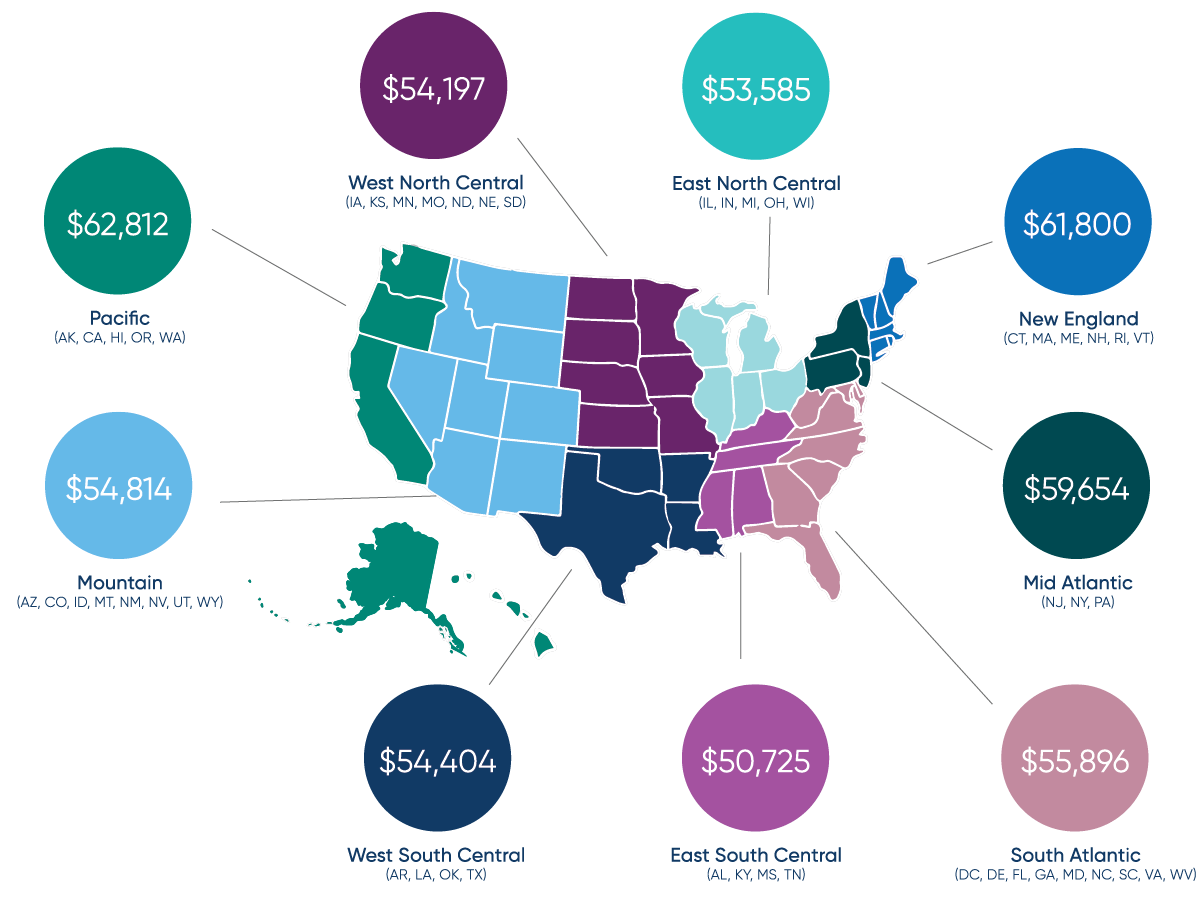Medical Coding Salary: How much does Medical Coding Make a Year?
If you're like most people considering a career in medical billing and coding, you're concerned about salary. After all, it's important! Luckily, medical billers and coders are some of the best-compensated employees in the healthcare industry.

Read on to find out how much medical billers and medical coders make in 2023.
Medical Coding Average Salary
Medical coding salaries can vary between $50,000 and $90,000 depending on certifications, years of experience, type of healthcare employer, and, for management positions, type of certification or degree.
Certifications Can Make a (BIG) Difference!
Some certifications, like the Certified Professional Coder (CPC) or Certified Professional Biller (CPB), start earning more money than their peers right off the bat. CPCs and CPBs can earn $50,000 - $70,000 per year right away, depending on their state and type of employer.
Other, more advanced certifications, like the Certified Professional Medical Auditor (CPMA), start at $70,000 and up in most states, and the most advanced, like the Certified Professional Coder-Instructor (CPC-I) and Certified Professional Compliance Officer (CPCO), start at $75,000 and $80,000 per year in their respective states.
If that's not motivation to study and pass that next certification exam, I don't know what is! Your certifications can open new doors professionally, and make a big difference in your starting, and continuing, salaries.
Degrees sort of matter for salary - but not really
Do degrees matter for your salary in medical billing and coding? The answer is yes, sort of. For more advanced roles, like compliance manager, college professor, or even CEO of a healthcare information management company, advanced degrees like a master's degree may make it easier to land a job. However, once you're in that job, your master's degree (or lack of one), doesn't make much of a difference - advanced professionals both with and without the degree command approximately the same salary.
Similarly, outside of these highly specialized roles, having an associate degree or bachelor's degree as a professional coder does not seem to affect your salary much - typically only two to 3 percent annually.
So all in all, does a degree matter for your medical billing and coding salary? The data says: not really. Many highly-paid coding professionals hold a degree, and just as many highly-paid professionals hold only a certification.
What really matters is the role you do, your credentials, and, surprisingly, the type of employer you work for.
Type of role matters
In the healthcare industry, your type of role matters quite a bit. The good news is, whether you start out in an entry level position or as a full-time coding specialist or billing specialist, your career as a medical coding professional has the potential to grow in any direction.
There are many types of coding professionals available within medical coding and healthcare information management at large, including:
- Certified medical coders (CPCs)
- Billing specialists (CPBs)
- Specialized coders, like Certified Inpatient Coder and
- Health information specialists who work with electronic medical records
- Health services managers
- And other health information professionals
Your type of employer matters as well - the bigger the better!
Surveys by the AAPC also show that not only does your type of role matter for your salary, but where you are employed matters as well - and typically, the larger the organization, the better.
Medical billers and medical coders who work in large physician group practices or within health systems or hospitals see a 5 to 10% higher salary than their peers in small or medium group practice or outpatient care settings.
Within these environments, too, coders who work in highly specialized areas, like ambulatory surgery centers, outpatient care centers, or insurance providers, tend to earn slightly more salary than their peers as well.
Years of experience matter too
Though starting salaries can be quite high with some credentials, the real salary is made over time - with years of work experience and promotions. Data shows that, no matter what your role, you can expect raises of 5 to ten percent (!) every 3-4 years you are in the industry.
That is pretty sizable! The net effect of all these raises is that your salary after 10 years in the industry is about 25-30% higher than when you started, and after 30 years in the industry, it's about 50-60% higher than when you started.
And that doesn't count promotions or transitions into higher-paying roles with an advanced credential or degree.
Try this salary tool to see what kind of salary you could earn as a medical biller and coder
The AAPC publishes a salary tool every year that makes it easy to check what kind of salary you could, or should, be earning in your area and role.
Check it out and let us know what you think. Is this salary accurate for what you see in your area?
That's it!
As you can see, salaries in the medical billing and coding field vary greatly, but they're mostly by things that are under your control, like certifications, years of experience, and the type of employer you choose. Use this info to your advantage, and you'll soon be on track to earn $60, $70, or even $90,000 per year as a coding and billing professional!
We hope you enjoyed this info, and we hope it helps you create a successful and fulfilling medical coding career.
As always, if you have any questions or any topics you'd like to see more about, just shoot us an email at medicalcodingace@gmail.com. We read every one!